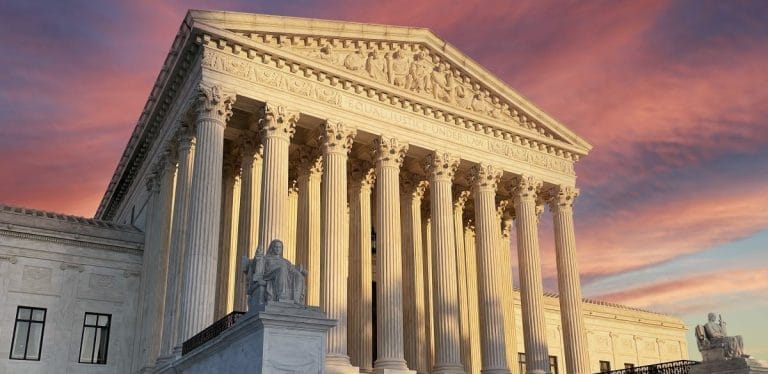
Categories

The United States Supreme Court has agreed to hear a case involving the Chevron doctrine, which gives federal agencies the power to interpret any statute’s ambiguity if the statute falls under the agency’s purview. Chevron is one of the most cited cases since it’s issuance about 40 years ago. Bank regulators, such as the Consumer Financial Protection Bureau (CFPB), rely heavily on Chevron deference to extend their regulatory reach. In Loperbright Enterprises v. Raimando, the continued existence of the Chevron doctrine is the primary issue before the Supreme Court.
At issue in Loperbright, a federal law allows the National Marine Fishery Service to put a federal employee (monitor) on private fishing boats to gather data to prevent overfishing. The question in the case is whether vessel owners must pay for federal monitors on their boats. Family fishing companies filed suit arguing the Agency does not have authority to require vessel owners to pay for federal monitors. The trial court and appellate court found in favor of the Agency, based in part on Chevron deference. A primary issue for the Supreme Court is whether to overrule Chevron deference, though the Court could potentially decide the case without touching Chevron.
Some Supreme Court experts predict the Court will take this opportunity to overturn Chevron. The Court has not mentioned Chevron in many years, and the current Court does not shy away from making bold moves. If overturned, it is unclear what happens to the scores of lower court decisions based on Chevron over the last four decades. In the banking sector, Smiley v. CitiBank is a significant decision about the meaning of interest for purposes of interest rate exportation powers for national banks. The Court deferred to the OCC interpretation to include late charges. Branch Banking & Trust v. FDIC is a case involving deposit insurance premiums, Bank of America v. FDIC involves insurance rates etc. Will today’s courts feel bound by prior decisions which rested primarily on Chevron?
One thing is certain. Uncertainty is bad for business. If all the work agencies do to provide guidance and fill gaps has no weight and can be disregarded – or not – at random by various courts, the industry will wind up with a host of differing and conflicting interpretations. This is costly for companies and consumers. Accordingly, if the Court overturns or materially limits Chevron deference, Congress may try to mitigate uncertainty by legislating that federal agencies’ interpretations of statutes they are charged with enforcing are to be given deference by courts.
There are other cases in the pipeline which may also give the Court a chance to overturn or limit Chevron deference, if it chooses not to do so in Loperbright.







































































